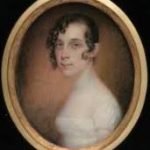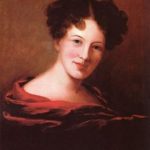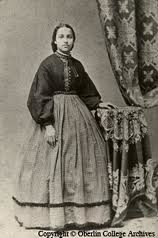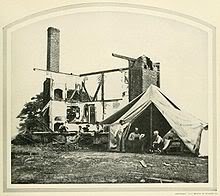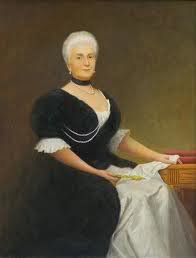Mary Anna Henry was the second child of Professor Joseph Henry. She had one older brother and two younger sisters. When her father was appointed the first Secretary of the Smithsonian Institution in 1846, he was promised accommodations.
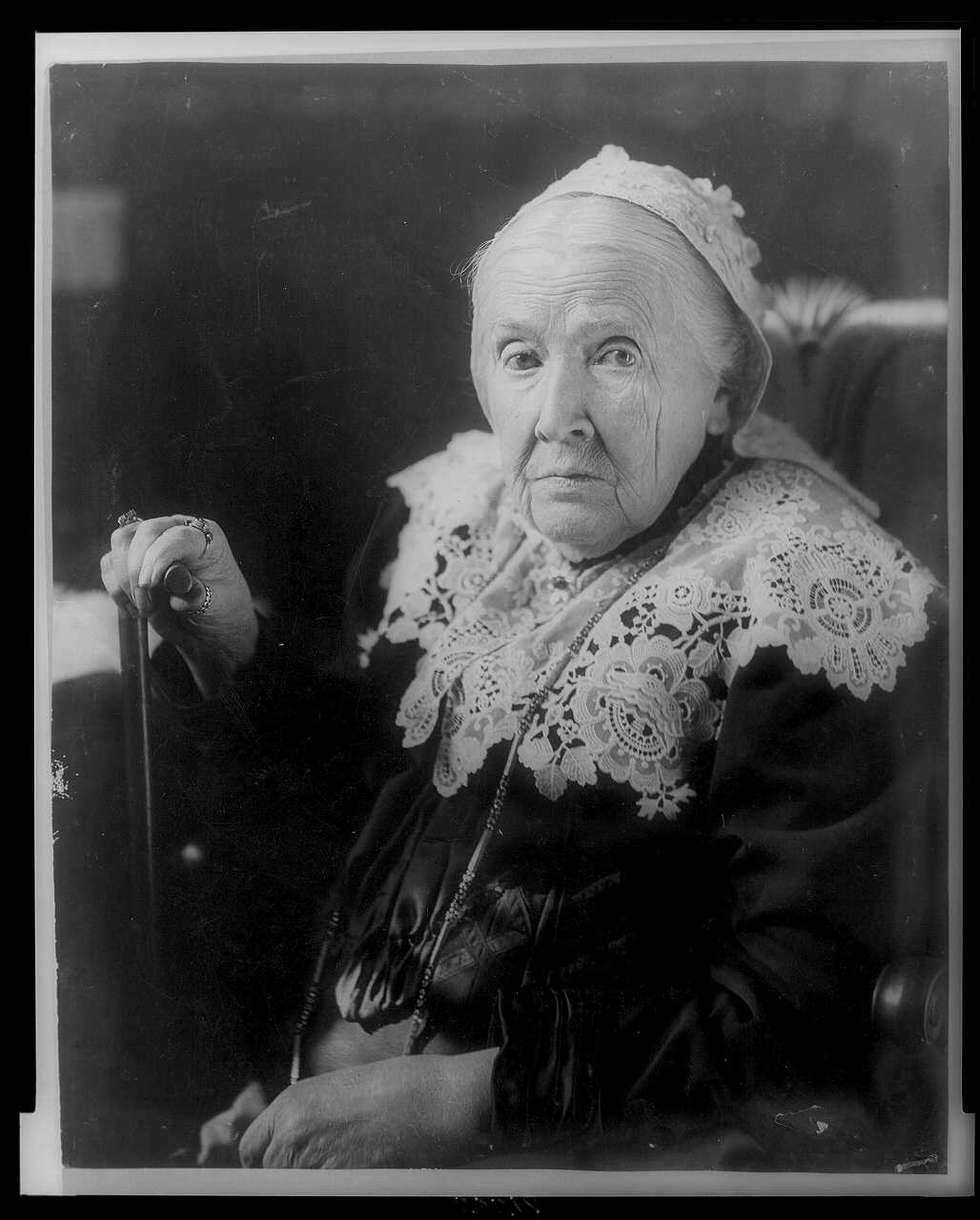
Mary Anna Henry
When the Smithsonian Institution Building was completed in 1855, a suite of eight rooms was constructed on the second floor of the East Wing, and the Henry family moved in. They remained in these apartments until Joseph Henry died in 1878.
Mary and her sisters were well educated. They were taught the domestic arts, and they were tutored in the visual arts, language, and music. Mary even had an artist’s studio in the Smithsonian Institution Building.
With the move to Washington, Mary Henry was surrounded by people at the top of the scientific, social, and political worlds. She had an insider’s view of the country before and during the Civil War. She was twenty-seven years old when the war began, unmarried, and living at home with her family.
Between 1858 and 1868, Mary kept a diary, and her entries recounted her father’s scientific activities and the changes the city of Washington experienced as it coped with an escalating Union army in its midst.
When the Civil War erupted in April 1861, the Smithsonian Institution was vulnerable. Located between the Capitol Building and the White House, the institution was not immune from the forces threatening to turn the city of Washington into an armed camp.
The Smithsonian Building was physically cut off from the rest of the city by the Washington Canal, and it was close to the Potomac River, which divided the District of Columbia from Virginia and the Confederate South. For its defense the secretary of war issued the following order:
The Colonel of Ordnance will cause to be issued to Professor J. Henry of the Smithsonian Institute twelve muskets and 240 rounds of ammunition, for the protection of the Institute against lawless attacks.
Living in the Smithsonian Building, the Henry family couldn’t help but be affected by the many soldiers passing through Washington throughout the war. On July 16 1861, Mary wrote in her diary:
We went up into the high tower to see the troops pass over into Virginia. 4 regiments crossed the long bridge while we were up there. Every now & then they rent the air with their enthusiastic shouts but it was sad very sad to see them go. I could not feel patriotic. I thought of the sad patient face we saw last night, of the many brothers who were pressing thus eagerly forward to shed the blood of brothers.
From her home, she could see the Confederate States of America. She wrote about the grandeur of the camps—the colorfully uniformed soldiers and the splendor of the officers—and about death and disease and the mud and squalor that invariably followed an army.
Mary’s diary entry for July 22, 1861:
All day long bodies of straggling troops have been coming into the city & the streets lined with men seated upon the side walks in the pelting rain. Their officers many of them killed, their companies broken up they did not seem to know where to go. Our Army has been completely routed could the Southerners have attacked the city on Sunday night it might very readily have been taken.
Mary was typical for a young woman of her upbringing. She worked with the News Boys Association, was an active member of the Presbyterian Church where she taught Sunday School for children, and did volunteer work and chaired benefits for wounded Civil War soldiers.
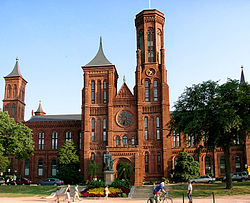
The Smithsonian Institution
July 6, 1863:
The fighting at Gettysburg commenced on Wednesday & continued on Thursday & Friday. The loss on both sides has been terribly severe, but the Rebels are in full retreat. Their bridge at Williamsport has been destroyed, & the rain has swollen the river so that the fords must be impassable. Their retreat seems to be cut off. General Lee in this move has evidently trusted too much to the incapacity of Hooker.
April 15, 1865:
We were awakened this morning by an announcement which almost made our hearts stand still with consternation. The President was shot last night in the Theater. When the morning paper was issued, he was still alive although little or no hopes were entertained of his recovery, but now the tolling bells tell us he has ceased to breathe. He is dead. Mr. De Bust has just told Hannah he died at ½ 7 o’clock.
Deeply must the country mourn this death for although uncouth & ungainly he was true hearted, magnanimous and kind and in the present crisis ready to follow such a course with the defeated belligerents as would win them back to their allegiance to the Government and subdue the rebellion in their hearts as well as subjugate their aims. The South has lost in him a good & judicious friend. His successor Johnson heartily desires the death of the leaders of the rebellion & is in every way ultra in his views.
I have not given the particulars of the disaster. It was announced in yesterday’s papers that the President with General Grant would be at Ford’s Theater in the evening, and a large crowd collected there in consequence. General Grant however left the city before night for N.Y. Mrs. Lincoln had not been well & the President went to the place of amusement with reluctance, not wishing to disappoint the audience. He was received with more than usual applause.
About 9½ o’clock a shot was heard which was at first supposed to be from the stage, and a man leaped from the President’s box upon the stage crying, “Sic semper Tyrannis” “I have done it,” and making his way to the door mounted a horse & rode off.
The shrieks of Madame Lincoln first announced to the petrified audience the catastrophe which had taken place. The President was found to be in a state of insensibility, shot twice through the head. He was immediately conveyed to a house opposite the theatre followed by Mrs. L. escorted by her friends in an almost frantic condition.
7 P.M.
The sad day of excitement is over. The President’s body has been embalmed and lies in state at the White House while the frantic grief of Mrs. Lincoln has settled into an apathetic dejection from which it is impossible to arouse her. The President remained unconscious to the last. The members of the Cabinet, Mrs. & Miss Kinney and Miss Harris surrounded his bed.Dr. Gurley was present & afterwards escorted the bereaved widow to her home. At the request of Mrs. Lincoln, he communicated the mournful intelligence to poor little Tad who was wandering from group to group of the sorrowing attendants, endeavoring vainly to find out what was the matter. His cries when he heard that he was Fatherless were exceedingly touching. He has been the most constant companion of the President.
Johnson has received the oath of office and seems impressed with the dignity and responsibility of his new office. The assassins have not yet been arrested but the evidence if conclusive that Booth a miserable actor and worthless vagrant, a Son of the great tragedian, committed the deed.
The feeling of resentment at the South as instigating in all probability the murder is deep, and I fear will entirely replace the feeling of kindness before entertained for the insurgents. The Southerners if they have countenanced the dreadful deed have fatally mistaken the interest of their cause.
Mary never married. When her father died in 1878, the Henry family left the Smithsonian Institution Building. For the remainder of her life, Mary continued to be a prominent citizen of Washington, promoting the significance of her father’s work as a scientist.
While on an annual trip with her sister to Europe, Mary Anna Henry died in Spain on April 10, 1903, at the age of 69.
SOURCES
The Smithsonian During the Civil War
The Institution
Joseph Henry: American Physicist
Smithsonian Institution Archives
Smithsonian Building
The Full Story

